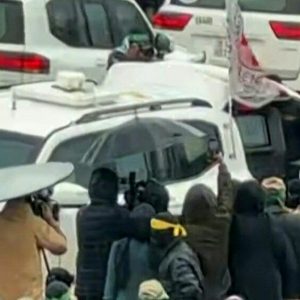Timbuktu suffocates under blockade
Timbuktu, Mali – – AFP
When radical elements in Mali announced they would blockade the ancient city of Timbuktu, residents thought it was just another intimidation tactic.
However, a month and a half later, the tens of thousands of inhabitants remain almost completely cut off from the world.
Half a dozen witnesses have described to the media the struggle with scarcity in a city where basic necessities are starting to run short.
The Al-Qaeda-linked alliance of radical groups named ‘Support Group for Islam and Muslims’ (GSIM) announced in a series of messages at the beginning of August that it was declaring “war in the Timbuktu region.”
“We thought it was just voice messages to spread fear,” said Abdoul Aziz Mohamed Yehiya, a civil society organizer.
“Today, frankly, what we are experiencing is exactly the blockade they had promised”, he said.
Local GSIM commander Talha Abou Hind has warned that any lorries that try to run the blockade and enter the region would be “targeted and set on fire”.
A Timbuktu resident who asked to remain anonymous said that he had recently returned to the city by road, travelling from the direction of Goundam, about 80 kilometres to the southwest.
Along the way, he said, “I met nothing but heavily armed rebels with 12.7 mm machine guns on motorbikes”.
“I was practically the only motorbike… there was no activity”, he added.
One alternative to the increasingly dangerous road had been the Niger River, which flows a few kilometres south of Timbuktu, offering a transport link between northern towns.
However, this option disappeared on September 7 when an attack on a ferry killed dozens of civilians.
All river boat journeys have now been cancelled until further notice, the company operating them told the media.
Sky Mali, the only airline serving Timbuktu, has temporarily cancelled its service to the northern city following a shell attack near the airport.
GSIM members have been extending their hold over rural areas around the better-defended towns in northern Mali, likely with the aim of increasing pressure on the central government rather than taking over the towns.
Mali’s ruling junta, which seized power in 2020, faces a multitude of security challenges throughout the country. It has been playing down the situation in Timbuktu.
Having refused to call it a blockade, the junta on September 5 finally acknowledged there was a “restriction on the flow of goods” to the city, as well as “soaring prices of basic necessities”.













